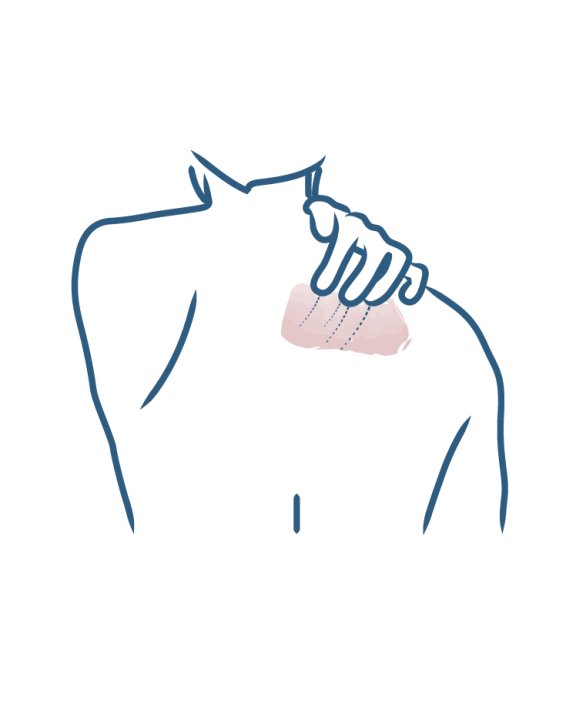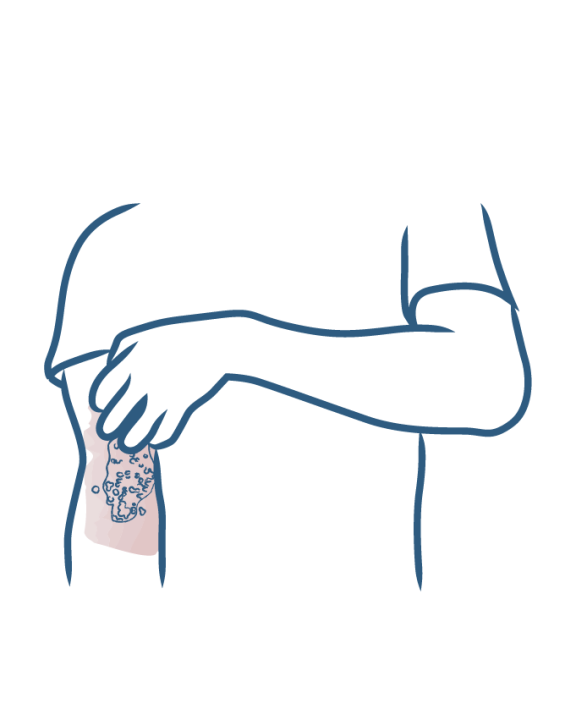- SUMMARY
- Eczema
What causes eczema?
- Baby’s eczema, infant eczema: what is it?
- What soap should be used for babies with eczema?
- Eczema in babies: what habits should you adopt?
- When should you consult a physician about your baby's eczema?
- Eczema in babies and children: the areas most often affected
- How should you treat baby’s and infant’s eczema?
- Which cream should you use for baby's eczema?
- Living with eczema day to day
- Eczema: What daily reflexes should you adopt?
- Eczema: can it be cured?
- Swimming pool, swimming when you have eczema?
- What are the habits to avoid when you have eczema?
- What soap should be used for eczema?
- Eczema cream, ointment: what should you use?
- Eczema: how to treat itching
- Eczema: what food should you eat?
- Which detergent should eczema patients use?
- Eczema: how can flare-ups be avoided?
- Body eczema: hands, feet, arms, back, face, etc
- Foot eczema
- Arm eczema (elbows, armpits, forearms)
- Eczema of the eyelids, eyes or palpebral eczema
- Eczema of the legs or varicose eczema
- Eczema on the neck and nape of the neck
- Eczema around the mouth
- Hand and finger eczema (chronic hand eczema)
- Facial eczema
- Scalp eczema
- Eczema on the back
- Eczema on the stomach and belly button
- Eczema in the ears

What causes eczema?
Once an eczema diagnosis has been made, many questions come to mind. Among them, of course, is the search for the cause. From stress to diet and perspiration, the causes of eczema are numerous. We explain everything to you!
Why look for the causes of eczema?
Many eczema sufferers tell themselves: if I find the cause of my eczema, maybe I can put in place strict measures that will allow me to never see red plaques appear on my skin again?
These hopes are often disappointed. Eczema is a complex and multifactorial disease. There is not one but many causes of eczema. Avoiding these different causes of eczema is not always easy, and in any case, it does not prevent 100% of flare-ups. On the other hand, identifying your own triggering and/or aggravating factors is useful to better control the disease.
Eczema and stress
" Eczema? It's due to stress, isn't it?" we often hear.
This is not completely true, or at least it is never the only reason. Reducing eczema to the stress factor alone means considering that it is not a real disease and that eczema is "in the head", but there are many other factors involved!
Psychological causes of eczema
For most people, eczema is not only associated with stress but also with other psychological causes such as depression, anxiety, insomnia, shyness, etc. Events such as bereavement, separation, redundancy, can lead to eczema flare-ups. Once again, it is important to combat preconceived ideas: no, eczema is not only due to psychological causes! On the other hand, eczema often has psychological repercussions that must be managed in the same way as the eczema itself if we want to achieve results on both the skin and for the mind.
Dietary causes of eczema
People with eczema often think that one or more foods are involved in the development of plaques. In reality, food allergies are ultimately under-represented among the various causes of eczema. It is therefore useless or even dangerous to start an overly restrictive diet, especially in children in the middle of their growth period.
Eczema and perspiration
Perspiration is a major factor in eczema. When it's too hot or when playing sports, sweating sometimes becomes very profuse and will aggravate eczema and even cause some flare-ups.
Eczema and allergies
Eczema is regularly associated with the notion of allergy: food allergy, allergy to pollens, dust mites, animal hair, perfumes, metals, cosmetics, etc. Some people even claim to be "allergic to everything", including non-palpable elements such as wind, cold or stress. Eczema is not strictly speaking an allergic disease, except in some cases of contact eczema. In this case, an allergenic substance is the main cause of eczema, and its presence on the skin must be strictly avoided.
Contact eczema can occur as a result of handling many everyday objects that are sources of allergens. For example, contact eczema due to clothing products(clothing, accessories, shoes) can be linked to a dye or glue used at the time of manufacture. Contact eczema due to nickel or chromium is very common and difficult to treat because these metals are very present in our environment. Contact eczema due to cosmetics is often the result of an allergy to a fragrance, dye or preservative.
Finally, contact eczema due to medications and topical care comes from the active ingredient itself or from an adjuvant. Here again, it can be a fragrance, preservative, glue, etc.
Please note that in some cases, it is not an allergy but a simple irritation, especially in the presence of naturally irritating substances. Thus, contact with detergents or bleach causes either skin irritation or real contact eczema due to cleaning products, but both types of lesions are very similar. To get a clearer picture, it is sometimes necessary to consult an allergist and undergo allergy tests.
Hereditary eczema
Heredity and genes are another major cause of eczema, one that cannot be really controlled. In the case of atopic eczema, it is often all or part of the family that suffers from eczema or other atopic signs such as asthma. A couple in which one of the parents suffers from atopy has a 50% risk of passing the disease on to their child. If both people in the couple are affected, the risk rises to 80%. Genetics is a cause of atopic dermatitis, but it is not the only one: environmental factors also play an important role in the onset of flare-ups.
In any case
When seeking the causes of eczema, it is sometimes tempting to change everything in your daily life: laundry, toothpaste, pillow, etc. All this is very expensive and won't lead to the resolution of the eczema. Your physician is the best person to answer your questions and save you all these unnecessary efforts.
When looking for the causes of eczema, it is important to remember that the first step is to treat the flare-up when it occurs. Treatment must remain a priority.

Our care routines
Atopic eczema, contact eczema, chronic eczema, eyelid eczema





